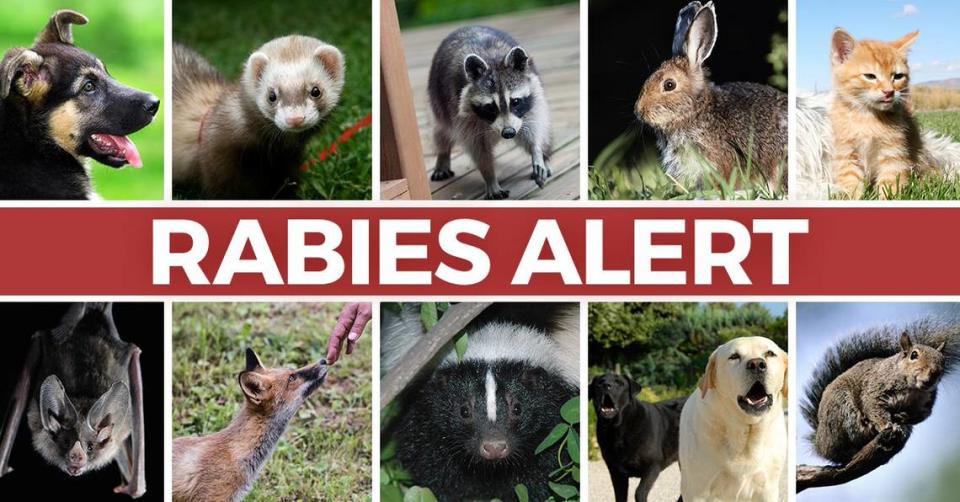Multiple people exposed to rabid coyote found in Lexington County, SC officials say

Two people were recently exposed to a rabid bat found in Lexington County, the South Carolina Department of Health and Environmental Control said Wednesday.
The coyote was sent to DHEC’s lab for testing on Monday, and was confirmed to have rabies the following day, officials said in a news release.
The animal was discovered near 12th Street and Walter Price Road in Cayce, according to the release. That’s close to the Steel Hands Brewing pub in the area between U.S. 321 and the Congaree River.
The people were told to seek medical care, health officials said. Further information on their conditions was not available.
If untreated, rabies can cause fever, agitation and death, according to the Centers for Disease Control and Prevention.
“Rabies is usually transmitted through a bite or scratch which allows saliva from an infected animal to be introduced into the body of a person or another animal. However, infected saliva or neural tissue contact with open wounds or areas such as the eyes, nose or mouth could also potentially transmit rabies,” DHEC’s Rabies Program Team Leader Terri McCollister said in the release. “To reduce the risk of getting rabies, always give wild and stray animals their space.”
DHEC says if you believe that you, someone you know, or your pets have come in contact with the rabid animal, or another animal that potentially has rabies, call the agency’s Public Health Columbia office at 803-896-0620 during normal business hours (8:30 a.m.-5 p.m., Monday-Friday) or after hours and on holidays at 888-847-0902 (Select Option 2).
Additionally, if you think you’ve been exposed to a rabid animal, immediately wash the affected area with plenty of soap and water, officials said.
Health officials said an exposure is direct contact — possibly through broken skin or mucous membranes in the eyes, nose, or mouth — from a bite, scratch, or contact with saliva, body fluids, or brain/nervous system tissue from an infected or possibly infected animal.
Getting pets vaccinated for rabies is the best way to protect against the deadly virus, DHEC said.
Since 2002, South Carolina has averaged approximately 148 positive cases a year, DHEC said.
There have been 25 cases of rabid animals statewide this year, compared to 83 confirmed rabies cases in South Carolina in 2022, according to the release.
This is the third animal in Lexington County to test positive for rabies in 2023, while eight rabid animals were confirmed in the county by DHEC last year.
Rabid puppy exposes dozens to deadly virus in SC and Georgia, health officials say
Three people exposed to rabid bat in Columbia, health officials say
Rabid cow exposed three people and over 40 animals to deadly virus, SC officials say

 Yahoo Sports
Yahoo Sports 